Ditapis dengan

Quranic Insights for Entrepreneur
Jadilah entrepreneur yang Allah mau. Banyak sekali jebakan dalam perjalanan menuju kaya dan justru membuat kita dapat petaka. Tidak ada yang salah dengan niat kaya, tetapi ketika jalur menuju kekayaan yang ditempuh mengesampingkan Sang Pemberi Kekayaan, itulah awal dari penderitaan. Bagaimana bisa seorang pilot menerbangkan pesawat tanpa membaca manual book dari pabrik pesawat? Niat terbang d…
- Edisi
- Cet. 1
- ISBN/ISSN
- 9786021164013
- Deskripsi Fisik
- x, 218 hlm; 14,5 x 20,5 cm
- Judul Seri
- -
- No. Panggil
- 297.273 REN q
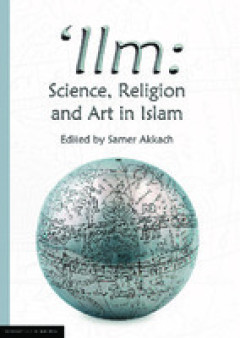
E-book Ilm: Science, Religion and Art in Islam
This edited volume of chapters resulted from an international conference held at the University of Adelaide in July 2016 under the same title to explore the multifaceted concept of ?ilm in Islam — its agency and manifestations in the connected realms of science, religion, and the arts. The aim is to explore the Islamic civilisational responses to major shifts in the concept of ‘knowledge’…
- Edisi
- -
- ISBN/ISSN
- 9781925261769
- Deskripsi Fisik
- 240 halaman
- Judul Seri
- -
- No. Panggil
- 297.265 AKK i
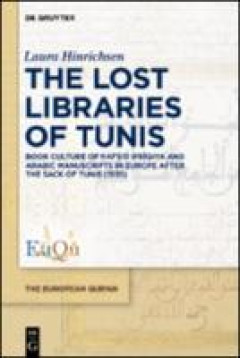
E-book The Lost Libraries of Tunis: Book Culture of Hafsid Ifriqiya and Arabi…
The libraries of Tunis are considered lost since the sack of the city by European armies in 1535. This study reconstructs the original holdings of Tunis’ medieval libraries by bringing together dispersed manuscripts from over 30 library collections worldwide. The outcome is twofold: the book maps the networks of the first European Orientalists and, by doing so, retrieves from oblivion an impo…
- Edisi
- -
- ISBN/ISSN
- 9783111343631
- Deskripsi Fisik
- 300 halaman, ilus.
- Judul Seri
- -
- No. Panggil
- 939.4 HIN t
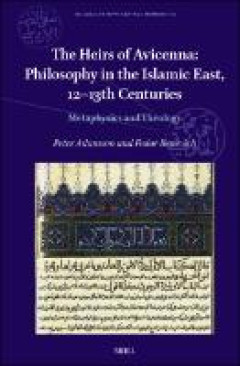
E-book The Heirs of Avicenna: Philosophy in the Islamic East, 12-13th Centuri…
This is the first in a series of sourcebooks charting the reception of Avicenna (Ibn S?n?, d.1037) in the Islamic East (from Syria to central Asia) in the 12th-13th centuries CE. Avicenna was the dominant philosophical authority in this period, who provoked generations of thinkers to subtle critique, defense, and development of his ideas. The series will translate and analyze hundreds of passag…
- Edisi
- -
- ISBN/ISSN
- 9789004503991
- Deskripsi Fisik
- 742 halaman, ilus.
- Judul Seri
- -
- No. Panggil
- 297.261 ADA t

E-book Islam, Arabs, and Intelligent World of the Jinn (Contemporary Issues i…
According to the Qur’an, God created two parallel species, man and the jinn, the former from clay and the latter from fire. Beliefs regarding the jinn are deeply integrated into Muslim culture and religion, and have a constant presence in legends, myths, poetry, and literature. In Islam, Arabs, and the Intelligent World of the Jinn, Amira El-Zein explores the integral role these mythological …
- Edisi
- -
- ISBN/ISSN
- 9780815635147
- Deskripsi Fisik
- 167 halaman, ilus.
- Judul Seri
- -
- No. Panggil
- 297.2 ZEI i
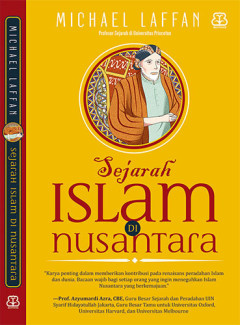
E-book Sejarah Islam Di Nusantara
Agama Islam tidak dilahirkan di Indonesia, namun justru negara inilah yang memiliki penduduk muslim dengan jumlah terbesar di dunia. Bagaimanakah cara agama ini masuk dan berkembang di antara suku dan budaya yang beragam di nusantara? Fondasi pertanyaan ini kemudian menggerakkan Michael Laffan, Profesor Sejarah di Universitas Princenton, untuk meneliti proses tumbuh kembangnya Islam di Indonesi…
- Edisi
- -
- ISBN/ISSN
- 9786022910589
- Deskripsi Fisik
- 328 halaman.
- Judul Seri
- -
- No. Panggil
- 297.965 98 LAF s

E-book Political Islam, World Politics and Europe: From Jihadist to Instituti…
The new and updated edition of Political Islam, World Politics and Europe focusses on the shift within political Islam, in light of 9/11 and the events of the Arab Spring, from a jihadist struggle, to institutional Islamism. Refuting what has often been referred to by commentators as the ‘moderation,’ of Islamism, the second edition of this book introduces the concept of ‘institutional…
- Edisi
- -
- ISBN/ISSN
- 9780415730488
- Deskripsi Fisik
- 395 halaman
- Judul Seri
- -
- No. Panggil
- 297.272 TIB p
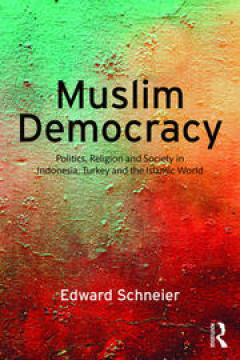
E-book Muslim Democracy: Politics, Religion and Society in Indonesia, Turkey …
Muslim Democracy explores the relationship between politics and religion in forty-seven Muslim-majority countries, focusing especially on those with democratic experience, such as Indonesia and Turkey, and drawing comparisons with their regional, non-Islamic counterparts.? Unlike most studies of political Islam, this is a politically-focused book, more concerned with governing realties than ide…
- Edisi
- -
- ISBN/ISSN
- 9781138928121
- Deskripsi Fisik
- 279 halaman
- Judul Seri
- -
- No. Panggil
- 297.27 SCH m
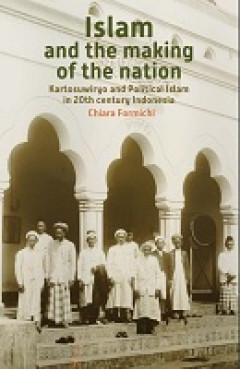
E-book Islam and The Making of The Nation: Kartosuwiryo and Political Islam i…
For decades, scholars of Indonesia have rejected the religious claims of the Darul Islam movement, interpreting the antagonism between the Islamic state and Soekarno’s republic as a fight for power, self-assertion, or land rights. Recently Kartosuwiryo and the Darul Islam have become heroic symbols of the local Islamist struggle, offering an alternative vision of this politician. The author l…
- Edisi
- -
- ISBN/ISSN
- -
- Deskripsi Fisik
- Leiden
- Judul Seri
- -
- No. Panggil
- 2X6.62 FOR i
E-book Islam, Humanity and the Indonesian Identity
"Islam exists in global history with its richly variegated cultural and social realities. When these specific cultural contexts are marginalized, Islam is reduced to an ahistorical religion without the ability to contribute to humanity. This limited understanding of Islam has been a contributing factor in many of the violent conflicts in the present day. Reflecting on Islam in Indonesia, the wo…
- Edisi
- -
- ISBN/ISSN
- 9789400603080
- Deskripsi Fisik
- 289 halaman
- Judul Seri
- -
- No. Panggil
- 297 MAA i
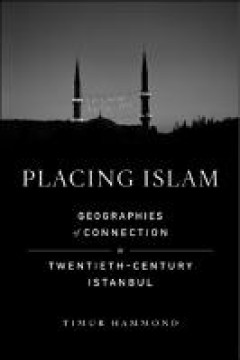
E-book Placing Islam: Geographies of Connection in Twentieth-Century Istanbul
For centuries, the Mosque of Eyu?p Sultan has been one of Istanbul’s most important pilgrimage destinations, in large part because of the figure buried in the tomb at its center: Halid bin Zeyd Ebû Eyûb el-Ensârî, a Companion of the Prophet Muhammad. Timur Hammond argues here, however, that making a geography of Islam involves considerably more. Following practices of storytelling and bui…
- Edisi
- -
- ISBN/ISSN
- 9780520387430
- Deskripsi Fisik
- 264 halaman
- Judul Seri
- -
- No. Panggil
- 297.09 HAM p
E-book Islam: A Very Short Introduction
Islam features widely in the news, often in its most militant versions, but few people in the non-Muslim world really understand the nature of Islam. Malise Ruthven's Very Short Introduction contains essential insights into issues such as why Islam has such major divisions between movements such as the Shi'ites, the Sunnis, and the Wahhabis, and the central importance of the Shar'ia (Islamic la…
- Edisi
- -
- ISBN/ISSN
- 9780585111216
- Deskripsi Fisik
- 176 halaman
- Judul Seri
- -
- No. Panggil
- 297 RUT i

E-book Polygamy in islam
Allah alone, the All-Merciful, deserves all praise and thanks, Lord of the universe, its Creator and Sustainer. Blessings and peace be upon the last of the prophets and messengers, Muhammad, his family and Companions and all those who follow in his footsteps till the end of time. Polygamy in Islam is a favourite topic for the critics of Islam and its message. The so-called secular and We…
- Edisi
- -
- ISBN/ISSN
- 9960953300
- Deskripsi Fisik
- 108 halaman
- Judul Seri
- -
- No. Panggil
- 2X4.315 PHI p
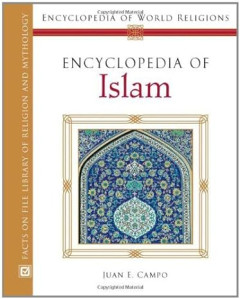
E-book Encyclopedia of Islam
Among the world’s religions, few have attained thehistorical, cultural, and civilizational stature anddiversity that Islam has. Since the seventh century, when it first emerged in the western region of the Arabian Peninsula known as the Hijaz, ithas been continuously adapted and carried forthby its adherents, who call themselves Muslims, tonew lands and peoples in the wider Middle East, Afric…
- Edisi
- -
- ISBN/ISSN
- 9780816054541
- Deskripsi Fisik
- 801
- Judul Seri
- -
- No. Panggil
- 297.03 CAM e
E-book Tata Niaga Islami Berbasis Digital
Istilah e-commerce mulai dikenal pada awal abad 21, namun mengalami perkembangan yang cukup pesat seiring berkembangnya teknologi telepon genggam, fitur aplikasi media sosial, chat, dan sejenisnya serta murahnya biaya koneksi jaringan internet. Pola komunikasi yang sebelumnya terbatas pada telepon, telegram, pos, koran, majalah, dan pesan singkat (SMS) kini merambah pada pernyataan-pernyataan y…
- Edisi
- -
- ISBN/ISSN
- -
- Deskripsi Fisik
- 115 hlm
- Judul Seri
- -
- No. Panggil
- 297.273 YUS t
E-book The Presence of the Prophet in Early Modern and Contemporary Islam : …
The image of the Prophet as it was established in Muslim religious and historical tradition had, despite many critical objections, remained for a long time at the centre of historical reconstruction and dominated both positive and more critical accounts of the “Life of the Prophet”. But in recent decades this image has been questioned and overshadowed by other research attempts. These loca…
- Edisi
- Vol.1
- ISBN/ISSN
- 9789004466739
- Deskripsi Fisik
- 737 hlm
- Judul Seri
- -
- No. Panggil
- 297 GRI t
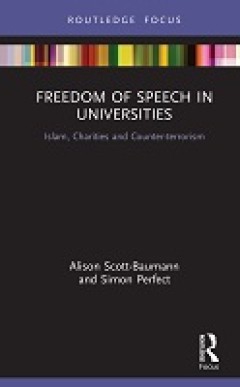
E-Book Freedom of Speech in Universities: Islam, Charities and Counter-terrorism
Freedom of speech and extremism in university campuses are major sources of debate and moral panic in the United Kingdom today. In 2018, the Joint Committee on Human Rights in Parliament undertook an inquiry into freedom of speech on campus. It found that much of the public concern is exaggerated, but identified a number of factors that require attention, including the impact of government coun…
- Edisi
- -
- ISBN/ISSN
- 9780367257828
- Deskripsi Fisik
- 152 halaman
- Judul Seri
- -
- No. Panggil
- 297.272 SCO f
Panduan Esoteris Mengolah Jiwa
Perilaku, adab, atau akhlak menentukan kualitas seseorang; baik atau buruk, bahagia, atau sengsara. Perilaku itu sendiri adalah cerminan dari dalam diri, dari jiwa. Semakin kotor dan keruh jiwa, perilaku akan semakin buruk dan jahat. Sebaliknya, semakin bersih dan jernih jiwa, perilaku akan semakin baik pula. Maka, jiwa adalah kuncinya. Mengelola dan mengolah jiwa merupakan keniscayaan agar per…
- Edisi
- -
- ISBN/ISSN
- 9786237163596
- Deskripsi Fisik
- 13 x 20 cm; 186 hlm
- Judul Seri
- -
- No. Panggil
- 297.5 ATT p
E-book Runtuhnya Kerajaan Hindu Jawa dan Timbulnya Negara Negara Islam di Nus…
Buku ini memaparkan tentang proses runtuhnya kerajaan Majapahit sebagai kerajaan terbesar di Pulau Jawa. Setelah Hampir 200 tahun berdiri megah sebagai kerajaan Hindu tertua di tanah Jawa, Majapahit akhirnya hancur terkubur dalam puing-puing sejarah. Keruntuhanya terpicu oleh pergolakan sosial-politik yang tak terpisahkan dari peran Wali songo dalam persebaran Islam di Nusantara. Perebutan kuas…
- Edisi
- -
- ISBN/ISSN
- -
- Deskripsi Fisik
- 330 hlm
- Judul Seri
- -
- No. Panggil
- 959 MUL r
Jaddid Hayatak! Segarkan Hidupmu: Petunjuk Hidup Lebih Tenteram Agar Lebih Su…
Tak sedikit orang yang ingin berubah tapi sering kali mereka menunggu situasi dan kondisi tertentu, menanti waktu dan tempat yang tepat - sementara mereka tidak tahu pasti kapan momentum itu datang. Mereka mengira, faktor-faktor yang mengubah hidup mereka ada di momentum-momentum tersebut. Mereka berharap, pada saat itulah mereka menemukan jalan untuk mendapatkan hidup yang lebih baik. "Itu h…
- Edisi
- Cet. 1
- ISBN/ISSN
- 978-602-1687-46-8
- Deskripsi Fisik
- 334 hlm; 15 x 23 cm
- Judul Seri
- -
- No. Panggil
- 297.5 SYE j
Rahasia makrifat jawa
Ajaran makrifat Jawa berasal dari para wali legendaris yang sudah tidak asing lagi namanya di tanah Jawa ini, tak terkecuali juga peran penting Syekh Siti Jenar. Selanjutnya, ilmu tersebut dilestarikan oleh generasi berikutnya termasuk puncaknya oleh petinggi Kerajaan Mataram, Sultan Agung. Agar tidak punah, ajaran makrifat ini terus saja dijaga, dikembangkan, dan diamalkan, baik oleh pihak ker…
- Edisi
- -
- ISBN/ISSN
- 9786022552987
- Deskripsi Fisik
- 209 hal; 14 x 20 cm
- Judul Seri
- -
- No. Panggil
- 297.261 WAH r
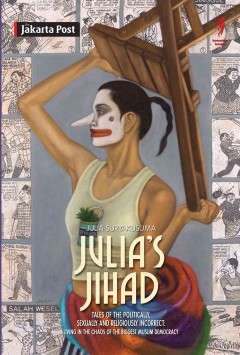
Julia's Jihad (Tales of the Politically, Sexually and Religiously Incorrect: …
Does the proliferation of jilbabs (headscarves) in Indonesia since 1998 mean the nation has gone hardline? How did democracy happen in Indonesia, which has the largest population of Muslims in the world, and will it stick? Is the term 'Muslim feminist' an oxymoron? Do Muslims even like sex? Julia's Jihad provides the answer to these questions and much, much more: how the nation struggles to ma…
- Edisi
- cet. 1
- ISBN/ISSN
- 978-602-9402-27-8
- Deskripsi Fisik
- xxxviii, 526 hlm; 14 x 20,5 cm
- Judul Seri
- -
- No. Panggil
- 297.27 JUL j

Membangun positive thinking secara islam.
- Edisi
- -
- ISBN/ISSN
- 9795618822
- Deskripsi Fisik
- 144 hlm; 12 x18 cm
- Judul Seri
- -
- No. Panggil
- 297.261 ABD m
- Edisi
- -
- ISBN/ISSN
- 9795618822
- Deskripsi Fisik
- 144 hlm; 12 x18 cm
- Judul Seri
- -
- No. Panggil
- 297.261 ABD m
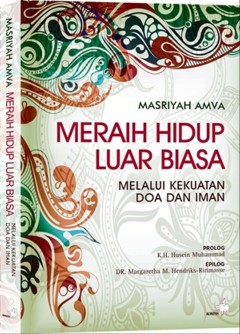
Meraih hidup luar biasa melalui kekuatan doa dan iman.
- Edisi
- -
- ISBN/ISSN
- 978-979-709-583-3
- Deskripsi Fisik
- xxii, 210 hlm. ;21 cm.
- Judul Seri
- -
- No. Panggil
- 153.8 MAS m
- Edisi
- -
- ISBN/ISSN
- 978-979-709-583-3
- Deskripsi Fisik
- xxii, 210 hlm. ;21 cm.
- Judul Seri
- -
- No. Panggil
- 153.8 MAS m

Islam inklusif: Menuju sikap terbuka dalam beragama.
- Edisi
- cet. 9
- ISBN/ISSN
- 979-433-147-3
- Deskripsi Fisik
- xi; 384 hlm;;15 x 23 cm
- Judul Seri
- -
- No. Panggil
- 297 SHI i
- Edisi
- cet. 9
- ISBN/ISSN
- 979-433-147-3
- Deskripsi Fisik
- xi; 384 hlm;;15 x 23 cm
- Judul Seri
- -
- No. Panggil
- 297 SHI i

Ilusi Negara Islam : Ekspansi gerakan islam transnasional di Indonesia
Gerakan garis keras transnasional di Indonesia terdiri dari kelompok-kelompok di dalam dan di luar institusi pemerintahan/parlemen yang saling mendukung untuk mencapai agenda bersama mereka. Bahaya paling jelas adalah identifikasi Islam dengan ideologi Wahabi/Ikhwanul Muslimin yang sangat ampuh membodohi umat Islam. Mereka menyusup ke bidang-bidang kehidupan bangsa Indonesia, terutama ormas-orm…
- Edisi
- cet. 1
- ISBN/ISSN
- 9789799873774
- Deskripsi Fisik
- 322 hlm. 15.5 x 21,5 cm
- Judul Seri
- -
- No. Panggil
- 297.7 WAH i
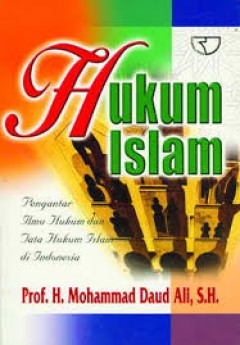
Hukum Islam : Pengantar ilmu hukum dan tata hukum Islam di Indonesia
Hampir 90% penduduk Indonesia mengaku beragama Islam, namun tidak serta merta negara Indonesia memberlakukan Hukum Islam.Namun karena alasan sejarah, penduduk, yuridis, konstitusional dan ilmiah, pengajaran Hukum Islam secara khusus menjadi mata kuliah di Fakultas Hukum. Buku ini menjadi buku silabus untuk mata kuliah Hukum Islam berdasarkan SK Mendikbud No. 17/D/0/1993.
- Edisi
- cet. 18
- ISBN/ISSN
- 979-421-261-X
- Deskripsi Fisik
- xx + 370 hlm. 13,5 x 20 cm
- Judul Seri
- -
- No. Panggil
- 340.59 ALI h
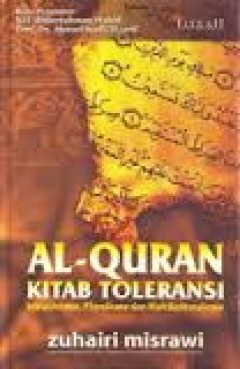
Al'quran kitab toleransi : inklusivisme, pluralisme dan multikulturalisme
Al-Qur'an merupakan kitab Suci Umat Islam yang senantiasa relevan dan kontekstual bagi kehidupan umatnya. Salah satu pesan yang paling menonjol adalah toleransi. Kurang lebih terdapat 300 ayat yang secara eksplisit mengesahkan pentingnya toleransi, kerukunan, dan perdamaian. Oleh karenanya sangat layak jika Al-Qur'an disebut sebagai Kitab Toleransi. Mengingat pesan toleransi lebih dominan dari…
- Edisi
- cet. 1
- ISBN/ISSN
- 978-979-17044-0
- Deskripsi Fisik
- xxxiii + 525 hlm. 15 x 23 cm
- Judul Seri
- -
- No. Panggil
- 297.1 MIS a
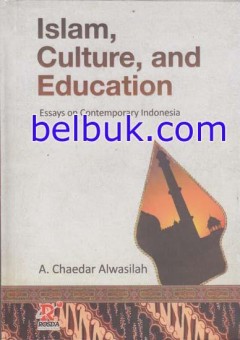
Islam, culture, and education : Essay on contemporary Indonesia
Islam, Culture, and Education reveal comments and explicit stance on many of the latest issues in Indonesia, such as radicalism and harmony of religion, the language and education policies, culture, bureaucracy, and politics, as well as the various are typical in Indonesia, such as mudik and ideas in developing ethnic literature. This book is not only useful for academicians and researchers In…
- Edisi
- cet. 1
- ISBN/ISSN
- 978-979-692-453
- Deskripsi Fisik
- xxvi + 437 pgs.; illus. 15 x 21 cm
- Judul Seri
- -
- No. Panggil
- 351.85 ALW i
 Karya Umum
Karya Umum  Filsafat
Filsafat  Agama
Agama  Ilmu-ilmu Sosial
Ilmu-ilmu Sosial  Bahasa
Bahasa  Ilmu-ilmu Murni
Ilmu-ilmu Murni  Ilmu-ilmu Terapan
Ilmu-ilmu Terapan  Kesenian, Hiburan, dan Olahraga
Kesenian, Hiburan, dan Olahraga  Kesusastraan
Kesusastraan  Geografi dan Sejarah
Geografi dan Sejarah